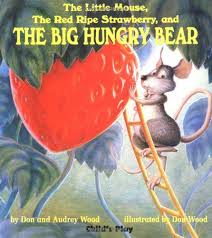 For everyone who tuned in to International Reading Association’s Google Hangout on Air “Making the Most of Mentor Texts,” I’m David, the missing panelist. If there’s anything worse than missing a program you’ve looked forward to for weeks, it’s failing over and over to get the link to connect you with the rest of the gang even while you’re watching them talking and waiting for you to get there! I tried for one hour and 15 minutes and finally gave up with only 15 minutes left in the Hangout.
For everyone who tuned in to International Reading Association’s Google Hangout on Air “Making the Most of Mentor Texts,” I’m David, the missing panelist. If there’s anything worse than missing a program you’ve looked forward to for weeks, it’s failing over and over to get the link to connect you with the rest of the gang even while you’re watching them talking and waiting for you to get there! I tried for one hour and 15 minutes and finally gave up with only 15 minutes left in the Hangout.
However, I am thankful I’ve been invited to add my list of mentor texts to those wonderful examples already posted by Ruth Culham, Kate Messner, Lisa Yee, and Varian Johnson. Please note I have selected texts that have been around for a long time. There are tons of recent examples, too, but sometimes I worry those fabulous old stories may be overlooked in our rush toward the latest releases. We all stand on the shoulders of the masters. So here’s to a few of those masters:
The Little Mouse, The Red Ripe Strawberry, and THE BIG HUNGRY BEAR
by Don and Audrey Wood (1984)
The narrator holds a one-way conversation with a mouse who never speaks. He shows us. A picture book is a partnership. The writer must tell what needs to be told and leave the rest to the artist, or at least to the imagination. This is a wonderful reminder.
Snowman Sniffles and Other Verse
by N. M. Bodecker (1983)
The title poem is a great example of how to tie the ending to the beginning and leave the reader with a surprising, fun twist to think about. Icy drops on the snowman’s nose turn into a different kind of drop at the end. Clever hints along the way.
The Best Christmas Pageant Ever
by Barbara Robinson (1972)
I reread Robinson’s tale about the Herdmans, “absolutely the worst kids in the history of the world,” at least once every year to be reminded how to create characters who scare you even while you’re rooting for them.
Fantastic Mr. Fox
By Roald Dahl (1970)
You want to meet villains. I’ll show you villains. Or rather, Roald Dahl will. And nobody knows better how to create them. Farmer Boggis is a mean man. Farmer Bunce is a nasty man. And Farmer Bean is a beastly man. We love to hate them all!
Charlotte’s Web
By E. B. White (1952)
For dialogue, read Charlotte’s Web. For dialogue, read Charlotte’s Web. For dialogue, read Charlotte’s Web. When Charlotte explains to Wilbur why she must eat flies to live, dialogue just doesn’t get any better.
 David Harrison has published 80 books of poetry, fiction, and nonfiction for children. As Poet Laureate for Drury University he writes a blog, Connecting the Dots. David lives in Springfield, Missouri with his wife, Sandy, a former high school counselor.
David Harrison has published 80 books of poetry, fiction, and nonfiction for children. As Poet Laureate for Drury University he writes a blog, Connecting the Dots. David lives in Springfield, Missouri with his wife, Sandy, a former high school counselor.